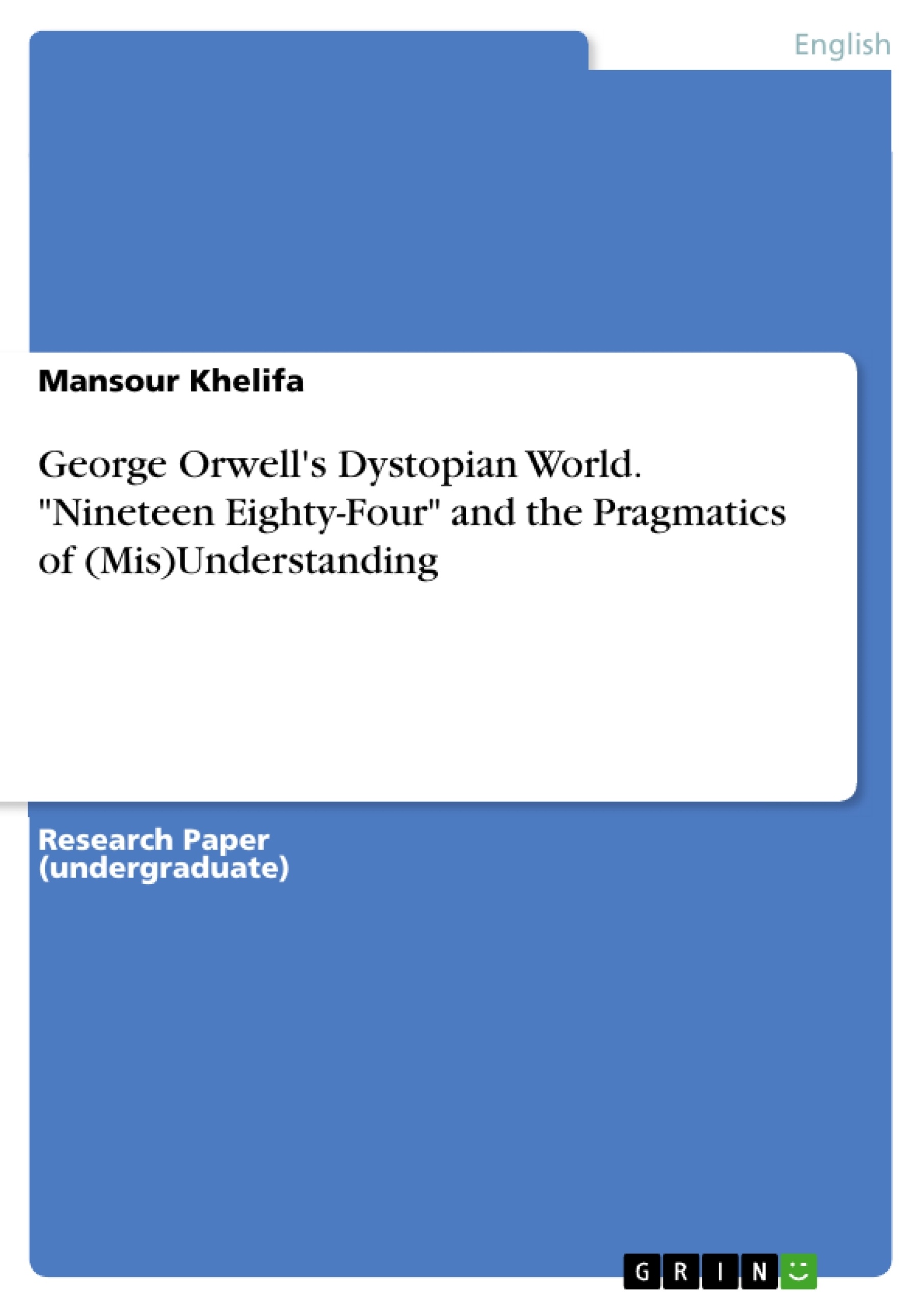Occupying a central position in the political inner debate of Winston Smith, the main character in Orwell’s novel Nineteen Eighty-Four, is the following statement/promise/threat: “We shall meet in the place where there is no darkness” (25). This cryptic illocutionary speech act is initially heard by Winston in a dream, then is distinctly associated with, and equivocally reiterated, later on in the novel, by O’Brien who embodies, at the same time, the main character’s ideological mentor, intellectual tormentor and physical torturer.
As the story unfolds, the initially promising trope, “the place where there is no darkness,” becomes more and more of a sibylline utterance representing a locus of (mis)understanding and a space of radical misreading. The representation of this place is stripped of its dream-like, metaphorical significance and reveals a dark, deictic and literal meaning. “[T]he place where there is no darkness” turns out the infamous Room 101, which is precisely the opposite of what it initially passes for, that is, a ‘utopian’ space of enlightenment.
On the contrary, Room 101 is a ‘dystopian’ place, in the novel, where the light is deliberately never switched off as a torture inflicted upon political dissidents like Winston Smith. Likewise, the story line seems to operate a series of ironical degradations such as utopia becoming dystopia; metaphor dwindling into synecdoche; and euphemism signalling a glaring “statement” (25) charged with a sense of utter (mis)understanding, foreboding and warning, culminating in the irreversible destruction of the main character. Winston’s revolutionary dream of a better world turns into a horrible nightmare full of equivocation and despair.
The mutual (mis)understanding between Winston and O’Brien leads to complete brainwash and emasculation of the former. Winston’s political resistance to, and hate of, Big Brother’s regime are annihilated, his dream is shattered. The story ends with Winston being ultimately defeated, ironically depicted as follows: “[h]e had won the victory over himself. He loved Big Brother” (297); whereas at the beginning of the narrative he has emphatically written in his secret diary in distinct capital letters: “DOWN WITH BIG BROTHER” (18).
Table of Contents
- George Orwell's Nineteen Eighty-Four (or) The Pragmatics of Mutual (Mis)understanding
- The Place Where There is No Darkness
- The Pragmatics of Mutual (Mis)understanding
- The Relationship Between Winston and O'Brien
- The Ambivalent, Misleading and Cunning Character of Signs
Objectives and Key Themes
This essay explores the concept of mutual (mis)understanding in George Orwell's Nineteen Eighty-Four, examining how the totalitarian regime of Oceania utilizes miscommunication and manipulation to maintain control over its citizens.
- The role of language and its manipulation in controlling thought and behavior
- The dangers of totalitarianism and its impact on individual freedom
- The nature of truth and its distortion in a totalitarian society
- The complexities of human relationships in a context of mistrust and surveillance
- The psychological impact of oppression and the struggle for individual resistance
Chapter Summaries
The essay begins by analyzing the central theme of the "place where there is no darkness," which is initially presented as a hopeful metaphor but ultimately revealed to be a space of torture and manipulation. It then explores the systemic manipulation of truth in Oceania, focusing on the roles of "Newspeak," "doublethink," and the "mutability of the past." The essay delves into the paradoxical situation of Winston Smith, a character who is aware of the state's deception yet participates in it as a civil servant. It also examines Julia's awareness of the state's propaganda and the manipulation of public sentiment. Finally, the essay focuses on the relationship between Winston and O'Brien, which is built on a foundation of mutual (mis)understanding, where communication is deliberately distorted and truth is obscured.
Keywords
This essay centers on the themes of totalitarianism, manipulation, language, truth, freedom, oppression, and resistance. It analyzes the complexities of human interaction and communication in a context of surveillance and control. The essay also examines the role of individual consciousness in the face of systemic power structures.
- Quote paper
- Mansour Khelifa (Author), 2015, George Orwell's Dystopian World. "Nineteen Eighty-Four" and the Pragmatics of (Mis)Understanding, Munich, GRIN Verlag, https://www.grin.com/document/314247




